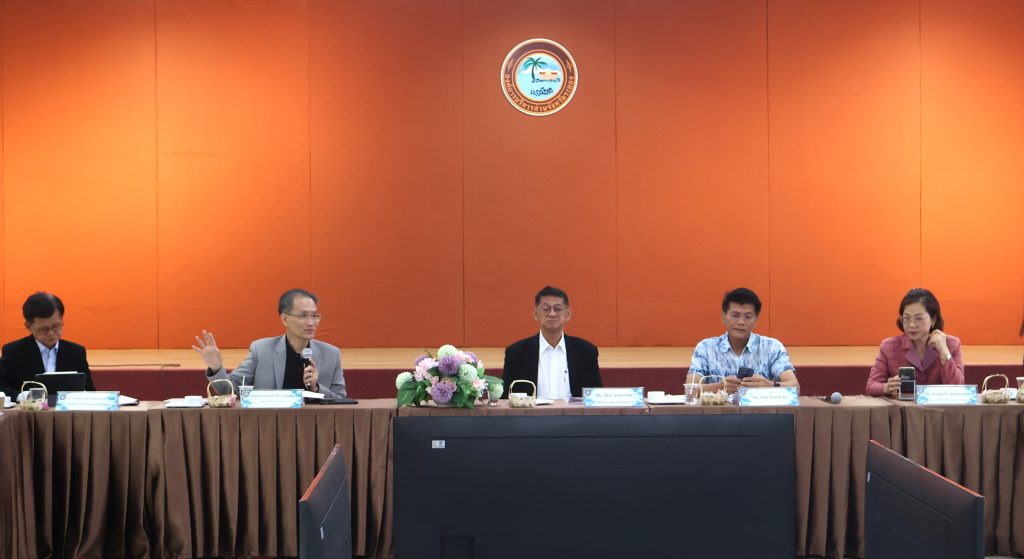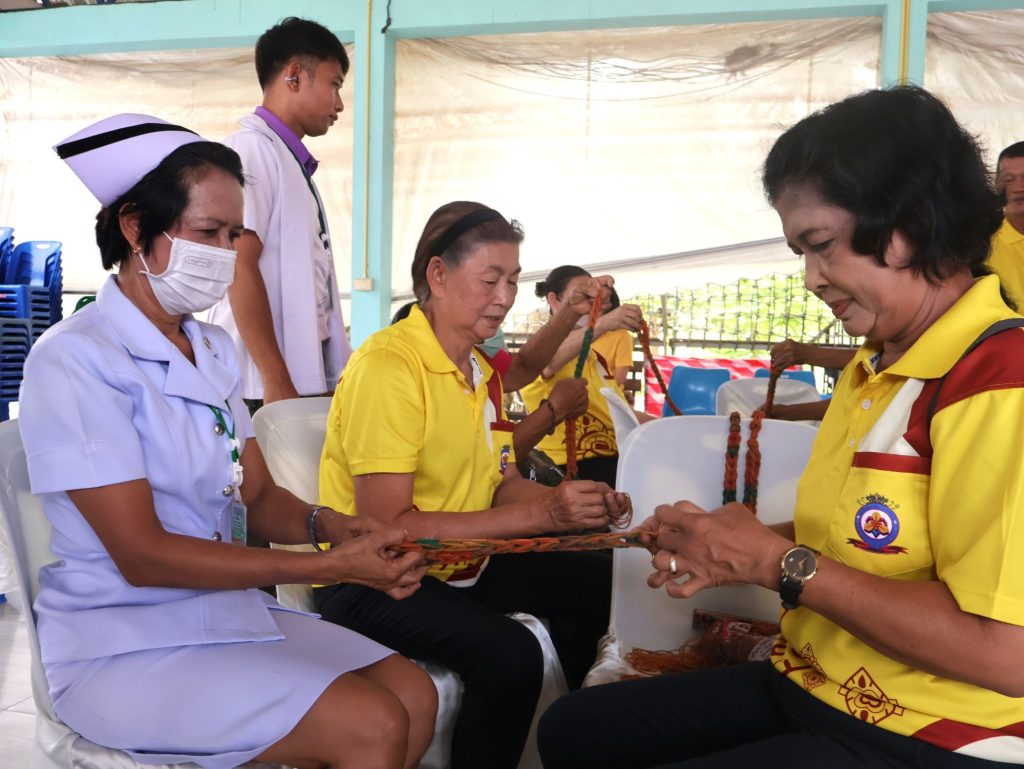
Rayong, 30 April 2025 – The ASEAN Centre for Active Ageing and Innovation (ACAI) recently embarked on a significant journey to Rayong Province in Thailand. This wasn’t just a routine visit; it was a mission of connection, collaboration, and a deep dive into the heart of elderly care within the region.
The first chapter of this Rayong story unfolded on April 29, 2025, at the Rayong Provincial Administrative Organization (PAO) hospital, also known as the Center for Rehabilitation and Care Services for the Elderly. The ACAI team was met with a warm welcome by prominent figures, including Mr. Piya Pitutecha, the Chair of Rayong PAO, and the Former Deputy Minister of Health, Dr. Sathit Pitutecha. There was a strong sense of purpose as people came together to share important knowledge and ideas, including Assoc. Prof. Varalak Srinonprasert from Mahidol University.
This was a vibrant dialogue where the core focus rested on strengthening the intricate network of care for the elderly in Rayong. ACAI and Rayong PAO Hospital explored avenues for deeper cooperation and the critical need to seamlessly weave innovative ageing programs into the existing fabric of healthcare services. ACAI presented potential innovative programs that are linked to the Rayong demand, specifically aligned with digital innovation, entrepreneurship, and tourism. The vision was to create a more integrated and holistic support system, one that empowers older adults to thrive.
The journey continued, leading the ACAI team to Khao Cha Mao Hospital. Here, the focus shifted to the daily realities of elderly care. The hospital opened its doors to reveal its Geriatric Clinic and the innovative Brain Training Center, spaces dedicated to nurturing the health and vitality of older adults.
ACAI’s team members stepped into the world of the hospital’s elderly care programs, engaging directly with the older adults who were benefiting from them. We witnessed firsthand the power of purposeful activity, participating in an inhaler-making workshop, in color-to-number matching exercises, and in group exercise sessions, where movement and laughter intertwined, promoting physical strength and a sense of community.
However, this visit continued to the discussions delve into the realities of implementation, acknowledging the challenges that inevitably arise. One significant hurdle was the difficulty in consistently encouraging older persons to participate in the programs. The reasons were complex, varying from individual circumstances to community-level factors.
ACAI listened intently, recognising that simply providing services isn’t enough; there must be a bridge to connect those services to the people who need them. This realisation sparked a commitment. ACAI pledged to explore avenues of support for Kao Cha Mao Hospital, crafting integrated programs that would reach from the grassroots level of the community all the way up to the broader provincial level. The goal was to create a multi-tiered system of support, addressing barriers to participation and ensuring that more older adults could access and benefit from these life-enhancing initiatives.
The journey of ACAI to Rayong was more than just a series of meetings and visits. It was a power of collaboration, the importance of understanding on-the-ground realities, and the unwavering dedication to improving the lives of older adults. As ACAI continues its work, the connections forged and the insights gained in Rayong will undoubtedly play a crucial role in shaping the future of elderly care across the ASEAN region.
###

